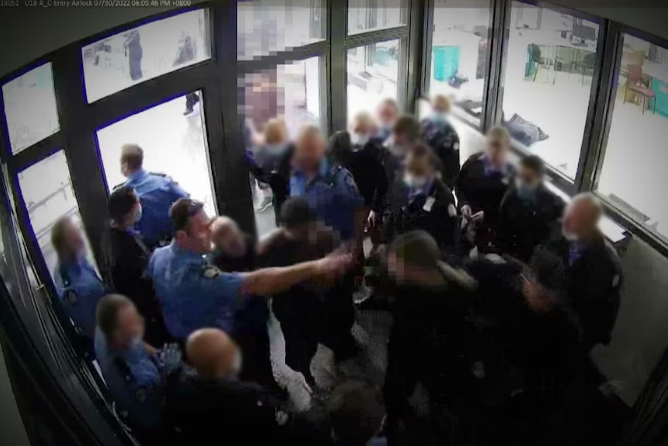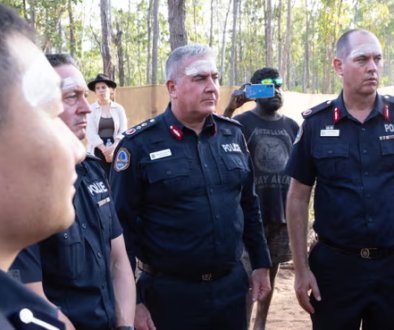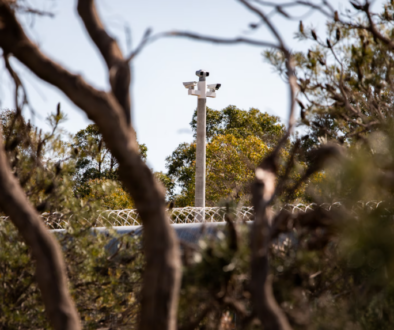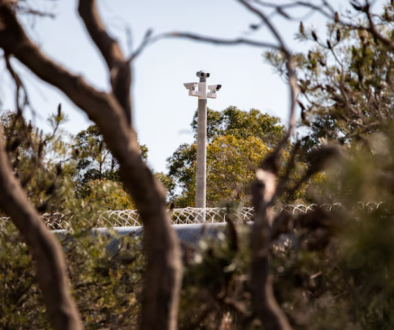Footage of guard assaulting Aboriginal child in WA prison sparks renewed calls for sweeping change
Key points:
- Incident highlights wider problem of “state’s own violence against children” in WA
- Indigenous advocates demand systemic change and criticize failed oversight
- Aboriginal children are disproportionately affected by system with a history of self-harm and abuse

Leading Indigenous justice advocates say the assault of a child in Unit 18 by a much larger and older prison guard captured on CCTV footage drives home the urgent need for immediate and long-term change to WA’s justice system.
The video, shot during a riot in the notorious Unit 18 facility – a stand-alone youth wing in a Perth maximum security adult prison – shows 52 year-old Daniel Travis Ratten kneeing a handcuffed 16 year-old boy in the torso.
The prison guard received a $5,500 fine and a spent conviction for the offence, which occurred less than two weeks after the first group of children were moved to Unit 18 from Banskia Hill detention centre in July 2022.
Ratten’s trial heard detainees in one of the unit’s day rooms started throwing items like steel poles and a window frame at youth custodial officers, leading to one calling a “code red” over the radio, the ABC reports.
Prison officers rushed to the unit from across the adult prison to bring the situation under control, and later the 16 year-old boy was escorted from the day room in handcuffs where, in a small airlock surrounded by more than a dozen officers, Ratten kneed him in the chest and pushed his head.
The boy told the court he “couldn’t really breathe properly” after being kneed.
Ratten claimed he had acted in “self-preservation” because he feared the boy was about to walk into him, but Magistrate Tanya Watt ruled the “much smaller, younger, handcuffed” boy posed “no threat”.
Noongar human rights advocate Megan Krakouer of the National Suicide Prevention and Trauma Recovery Project said she was “so disappointed to see a troubled youth demonised as a rioter instead of being supported”.
“We know this boy. I have offered again and again the service that I lead to the State Government to nurture this boy. We are the only service that has proven itself to turnaround these deeply troubled children,” she told National Indigenous Times.
Ms Krakouer, who alongside Gerry Georgatos has been working with current and former youth detainees on a class action against the state of Western Australia, said she and her colleague were prepared to work or free to support rehabilitating the young people detained in Unit 18.
“We succeed again and again with these kids but are forever bypassed because we are part of the class action tussle. Well, forgive us for having a moral compass,” she said.
“What was in the CCTV footage, I can tell you is reflective of the daily reality. I am also tired of media using the same old former and present watchdogs to comment on what they failed to expose over years and decades.
“If everyone from Inspectors to Children’s Commissioners and others had done their job, these kids would not have been failed, ruined and some die by suicide post release and one while in custody.”
Ms Krakouer said that during the COVID quarantine in 2020 she, Mr Georgatos and a third colleague demonstrated a restorative approach with young offenders works.
“The watchdogs need to stop their half-hearted approach. They also need to stand up and get behind us. These kids’ lives matter,” she said.
“I reiterate to all the media; Let the children keep on speaking, get behind their right to speak. Stop relying on failed watchdogs… Stop the clickbait.”
Noongar human rights law expert Dr Hannah McGlade told National Indigenous Times that the “violent unjustifiable assault on a youth who was handcuffed and not misbehaving is indicative of the wider problem of the state’s own violence against children and youth in detention centre”.
“Aboriginal children especially bear the brunt of this violence, and the consequences are known and dangerous, potentially fatal,” she said.
“We have a national commitment to Close the Gap on Indigenous youth incarceration but the WA government has a long way to go to evidence genuine commitment.
“Children and youth should only be incarcerated as a last resort, we must raise the age of responsibility to 14 years consistent with UN law, and ensure that incarcerated youth are engaged with in age appropriate manner. This means of course they should never be imprisoned in adult facilities – a severe human rights violation – and Aboriginal youth officers should be engaged to work closely with them in a therapeutic and supportive manner, alongside elders and traditional healers.”
Unit 18 and WA’s youth justice system more broadly, in which Aboriginal children are drastically over-represented, have long been the centre of controversy.
In October 16-year-old Indigenous boy Cleveland Dodd died after self-harming in Unit 18.
As early as August 2022, inquiries by Greens MP Brad Pettitt revealed a shocking rate of self-harm, including suicide attempts, in Unit 18 in its first few weeks of operating, as well as in Banksia Hill.
The Supreme Court of WA has ruled the state government’s use of prolonged lockdowns in youth detention as unlawful, and past and present Children’s Court presidents and Inspectors of Custodial Services have repeatedly condemned the system’s failures.
Contact us
Please provide a brief description of your claim.



